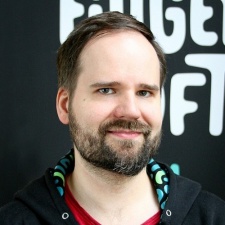2021 is now well underway and the latest Pocket Gamer Connects Digital is set to bring together some of the finest voices in the games industry and beyond.
Pocket Gamer Connects Digital #6 takes place from April 19th to 23rd, so to give you a taste of what to expect, we’ll bring you interviews with some of our esteemed speakers at the show.
The conference spans five days and will feature a broad selection of tracks, talks and speakers, as well as various fringe events and the return of our meeting system.
For more details on the event and to book a ticket, head to the website.
For today’s spotlight, we spoke with Fingersoft chief financial officer Markus Vahtola, the Finnish game’s developer known for the 1.5 billion download franchise that is Hill Climb Racing.
At PGC Digital #6, Vahtola will host a presentation on ‘What it means to be the CFO of a game company’.
PocketGamer.biz: Tell us a bit about your company?
Markus Vahtola: Fingersoft is one of the most northern game studios in the world, chilling out just 170 kilometres south of the arctic circle in Oulu, Finland.
We started out as an app company back in 2012, when our founder Toni Fingerroos quickly shifted gears and accelerated the company to global success with Hill Climb Racing which is currently one of the best-known racing games in the world.
We love high velocity and enjoy our relaxed yet professional culture where everyone is valued and constant learning is encouraged.
What does your role entail?
The main focus is on sustainable growth and providing the best environment for work in games.
At Fingersoft the wellbeing of our personnel and finance matters are on my table on a daily basis. We are a happy family taking care of each other and our benefits are world-class. To enable this, we must have a clear understanding of our core business and the current market.
On a more practical level, one can say my role is to enable efficient and informative decision-making through strategic reporting, rolling budgeting and financial forecasting across the different game teams. It is almost like being a chief information/metrics officer, considering the importance of accurate and insightful data.
Why did you want to work in the games industry?
I have been passionate about games since the 1990s when I first started gaming with C64 and PC. One could say it is a dream career because of the prevailing attitude we have among the game industry professionals. We craftily blend technology and art, and thus together as an industry build the games market with an infinite mindset where creativity and execution matter the most.
Furthermore, I believe games provide one of the most equal means of connecting people from different backgrounds. It delights me to work towards creating meaningful and empowering entertainment experiences for everyone, and I feel my skills and educational background are best put to use in this industry where there is a clear demand for a wide range of talent.
What advice would you give to anyone looking to get into it?
Reflect upon what you are passionate about and dedicate yourself to building a skillset and portfolio. Technology advances quickly, which also means that knowledge becomes obsolete unless practised. Be curious and most importantly have fun!
What are your thoughts on the industry in the last 12 months?
Last year, the games industry proved to be bigger than the film industry and sports combined. The global pandemic has influenced consumer behaviour and also the ways of working. Companies such as ours have a strong focus on the well-being of people, both our customers and our employees.
Nowadays parents are more supportive and encouraging their children to pursue a career in games, which I find a positive change.
Markus Vahtola
If anything, it has become increasingly evident how meaningful games are and one can marvel at the amazing things we can achieve on a company level even when working remote.
What major trends do you predict in the next 12 months?
It is safe to assume that the metaverse bridging different industries and the role of recognisable IPs will continue to grow.
How has the games industry changed since you first started?
The games industry has become a lot more recognised and respected as a career choice thanks to the support from media and government agencies among others. Early on parents may not have been supportive of game development careers but this kind of attitude is long gone. Nowadays parents are more supportive and encouraging their children to pursue a career in games, which I find a positive change.
At the same time, the games industry is more competitive than ever. Only a handful of games succeed and the amount of tools available today is mind-boggling. I recall studying ‘C++ for Dummies’ when I was 13 years old and being slightly disappointed at realising all I could program after a month was a simple text adventure game.
Nowadays we have very elaborate game engines available and an ever-growing library of information about how different kinds of games are built. The risk here is that people cut corners, which simply was not possible back in the day when it was obvious to distinguish a proficient programmer from a makeshift one.
Which part of the Connects event are you most looking forward to and why?
I am looking forward to the question and answer part of my talk. It is also interesting to hear views from a wide array of colleagues at Industry Visions and Values alongside the meetings booked. If there is any time left, I’ll enjoy listening to the experiences shared at Game Maker Insights and seeing the creativity bloom on the Incredible Indies track.
Want more?
The full conference schedule is now live on the website. In the meantime, you can also check out our other track rundowns and coverage of previous Pocket Gamer Connects conferences ahead of the event itself.

